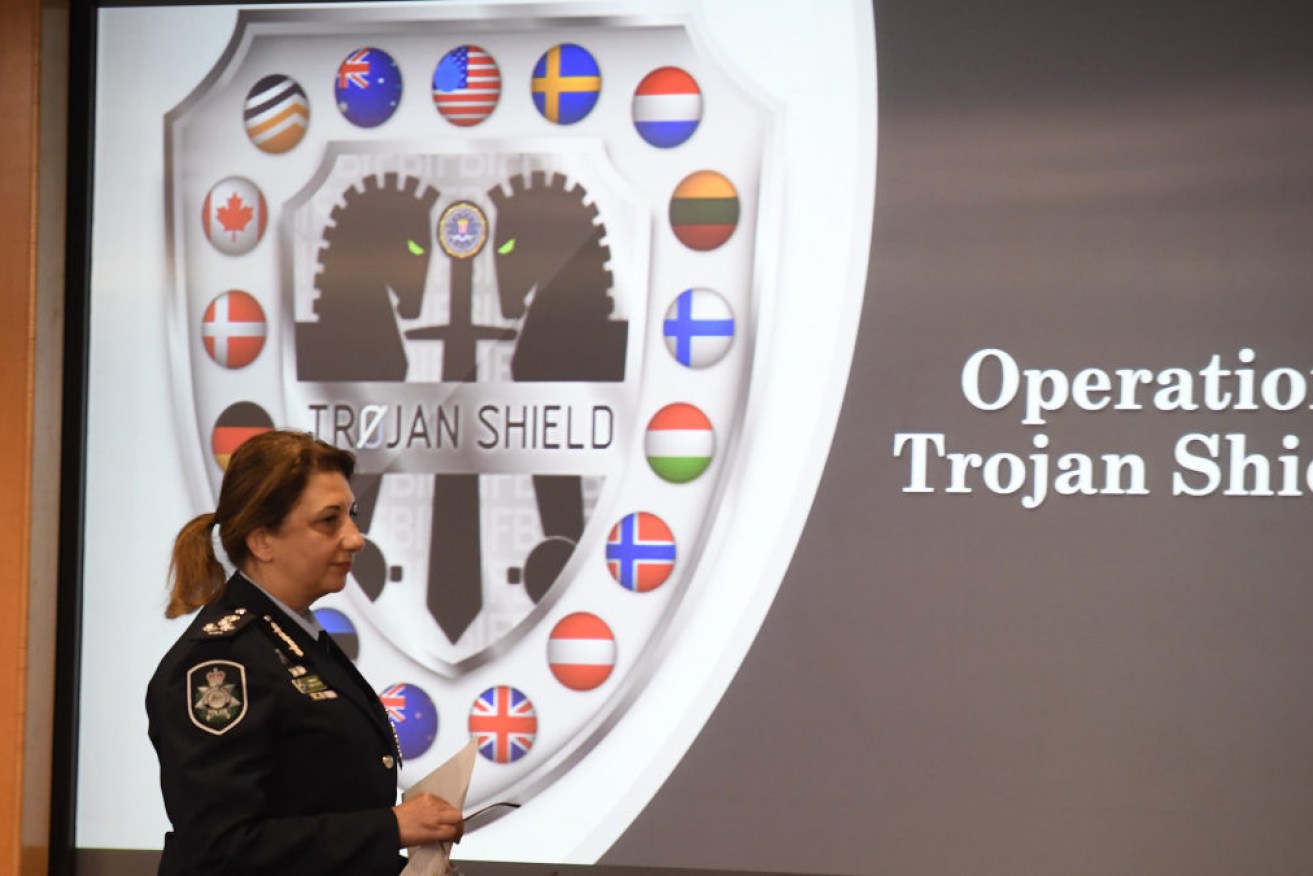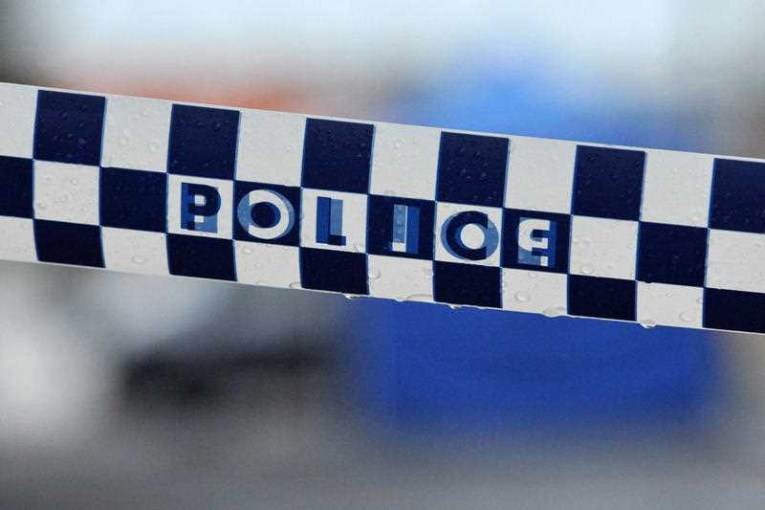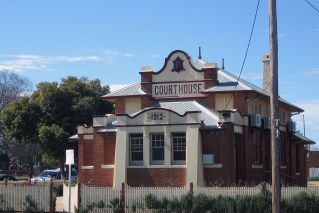Operation Trojan Shield: How one Australian and a messaging app led to huge global crime sting


A global sting operation led by the AFP and FBI has resulted in drug busts and arrests. Photo: AAP
Two years ago a post popped up on Reddit.
It was a short, sharp message from the developers of a new encrypted app to say they had launched their product.
“Introducing Anom — an Ultra-Secure Mobile-Cell-Phone Messaging App for Android,” it read.
“Your Confidentiality, Assured. Software hardened against targeted surveillance and intrusion – Anom Secure. Keep Secrets Safe!”
It was just like WhatsApp – but for criminals and a lot more exclusive.
The app was built into a special smartphone. You couldn’t just download it from the Apple app store or buy the modified handset online. You had to be introduced to a special supplier.
Two years later, the Australian government would reveal the app was used by 9000 law enforcement officers from 17 countries over three years to track and follow international drug kingpins.
This week, more than 800 crime figures were arrested across the world – 100 of which were in Australia – as part of “Operation Trojan Shield”, a global policing operation that relied on the evidence produced by Anom.
At the centre of it was one of Australia’s most-wanted drug traffickers.
Sydney-born Hakan Ayik, 42, fled to Turkey a number of years ago to evade capture. He has been based in Istanbul, where police believe he continues to run his criminal empire.
Mr Ayik was handed the original phone by undercover agents, who picked him because of his standing in the crime world, international connections, and the fact many would trust him.
Ayik then passed on the phones to other criminals, who used the app to network with a wide range of people pushing large amounts of drugs across continents.
In one conversation released by the Department of Justice, two people text messaged each other to organise a deal where a ship’s captain would bring drugs in close to shore before throwing them overboard, to be collected by local gangs.
“I have a cargo ship with captain on side too they want to throw over load as they leave,” one wrote.
“So once tug boats release the pilot boat guides him out to sea once the pilot boat leaves we msg saying throw then they’ll throw right away.
“Can you do this? If so, what is your fee.”
The other man replied that his network “can definitely catch it” and that they charge a “20 per cent door fee”.
“How many kg’s can they do per time? What are the cost of goods? When can we start?” the interested party wrote.
“Is that firm bro? Can they charge a fee instead? I have a job ready as tomorrow to pick up its already here,” was the final message.
The deal never happened – one of the men got cold feet.
But many others did. After Ayik started sending the phones with the Anom app around, the network grew confident.
Criminals across the world used the app to organise drug shipments, gun sales, launder money and plan murders.

Some of the images shared on the platform.
By the time the Australian government announced the operation to the public, around 12,500 Anom phones were active in the underworld, including 1100 in Australia.
An international effort
While the Americans and Australians led the charge, the European Union’s policing agency Europol was also involved.
The United States’ Federal Bureau of Investigation (FBI) had begun operating the encrypted device network before it went live.
In 2018, US authorities dismantled the Phantom Secure encrypted smartphone network and arrested its chief executive.
After that, a person known only as “a confidential source” started creating a new hardened phone with its own app.
The FBI decided it would drive the encrypted messaging app, inserting a master key into devices that allowed it to download and read messages, without the sender knowing.
A reduced prison sentence and $155,000 in expenses later, the FBI, along with the help of its “confidential source” kickstarted Operation Trojan Shield.
After 50 devices were spread across Australia, the Australian Federal Police (AFP) started to monitor what they were being used for.
“100 per cent of Anom users in the test phase used Anom to engage in criminal activity”, the affidavit said.
On Monday, the court order keeping Operation Trojan Shield a secret, which was lodged by an unspecified country, came to an end.
Prime Minister Scott Morrison called the sting ‘a heavy blow” against organised crime.
“The Australian government, as part of a global operation, has struck a heavy blow against organised crime – not just in this country, but one that will echo around organised crime around the world,” Prime Minister Scott Morrison said.
“This is a watershed moment in Australian law enforcement history.”
The operation had resulted in 800 suspects being arrested and the seizure of eight tonnes of cocaine, two tonnes of amphetamines and 22 tonnes of cannabis, Europol said this week.
There have also been 700 house searches, 250 firearms seized and $48 million in cash or cryptocurrency seized.
It’s expected that represents just the tip of the iceberg.








